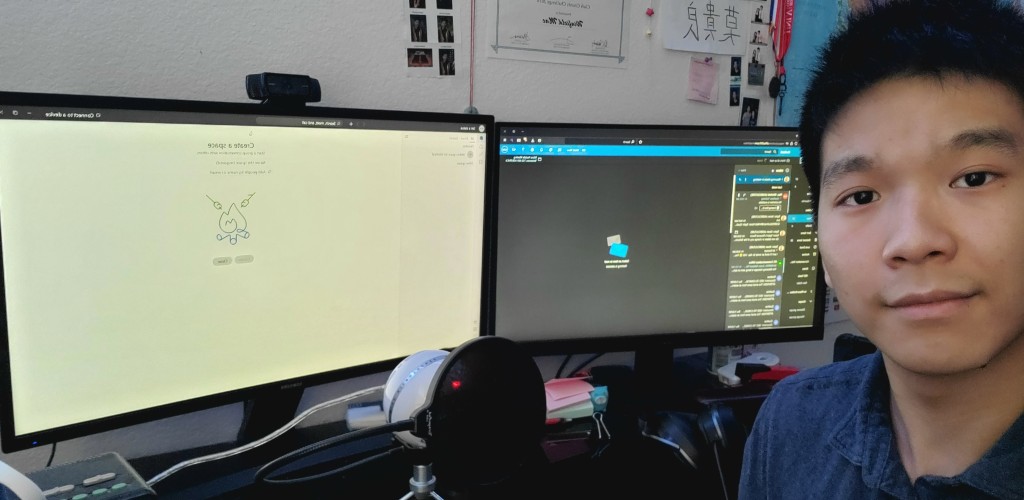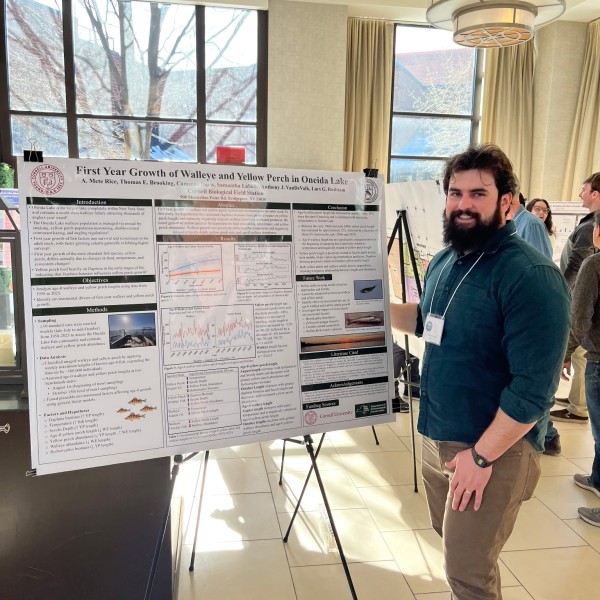Winfield Mac ’23 spent the summer interning with the New York State Department of Agriculture and Markets’ Division of Food Laboratory. The internship, available for the first time this summer, enables undergraduate students in the College of Agriculture and Life Sciences to collaborate with Agriculture and Markets scientists and leaders who help ensure the safety of New York’s food supply.
“We were happy to have Winfield assisting in our laboratory programs,” said Dr. Maria Ishida, director of the Food Laboratory. “On his first day, he helped us optimize our search for FDA product codes using his coding skills. We have a cooperative agreement with the U.S. Food and Drug Administration (FDA) and what Winfield assisted with is one of the project requirements. It was remarkable how he improved our search in a couple of days. I hope we have future opportunities to interact with students from the College of Agriculture and Life Sciences; it was a fruitful experience.”
Here, Mac shares how the internship helped him apply classroom knowledge to real-world problems:
Your major is information science; what intrigued you about working in food safety?
Originally, I planned to major in computer science, but information science has a valuable intersection between humanities and technology that I find rewarding. CALS creates many opportunities for students to reach out and help their local community through internships, which I think is awesome. I was drawn specifically to the New York State Food Laboratory because I thought it would be interesting to see how software plays a role in quality control and assurance while having a meaningful impact on my community.
What was involved in your internship?
I worked with three sections at the Food Laboratory: chemistry, microbiology and quality assurance. Most of their work focuses on testing products to make sure they’re safe and are meeting federal requirements. All of these departments have standard operating procedures (SOPs) – lists of how to do specific processes and tests that state employees use in the lab to make sure they’re testing everything properly and consistently. Before, they were holding all their files in hard drives and tracking them manually. I’ve been helping them transition to Qualtrax, which is an online document manager where they can centralize all their documents in a more structured and automated system.
How did your coursework influence the way you approached your internship?
One of the things they have to do in the Food Lab is classify products using the correct FDA product codes. They were using an online tool where they had to manually pick every segment that makes up the full product code: product description, food type, packing and manufacturing. Using some techniques I learned in a data science class last semester, I pulled a big spreadsheet from the FDA’s online database that has all the various parts of the product codes. I wrote just a little bit of code using Python, so now users in the Food Lab can search for specific keywords, and it pulls those products from the database and automatically downloads the correct product codes into the labels.
I’ve learned a lot about quality assurance and control processes and how much work goes into standardizing processes in a lab. This internship gave me practical knowledge into how states regulate food, cosmetics and drugs, and it gave me the chance to practice strategies I’ve learned in lab classes in real projects.
The internship Mac completed was funded by the CALS Alumni Association.
“We are very pleased to partner with Cornell on their student summer internship program,” said Jennifer Trodden, deputy commissioner for Agriculture and Markets. “This type of collaboration provides new and upcoming professionals interested in the field of food safety an opportunity to see what we do as an agency and to be a part of our efforts to regulate the safety of food in New York state. We were truly excited to see the talent and interest in this very important policy area and look forward to partnering with Cornell in the future on this program.”





